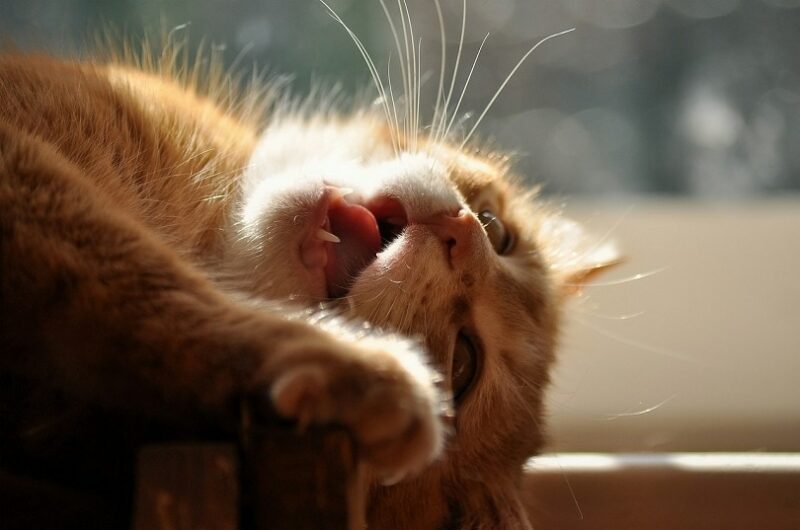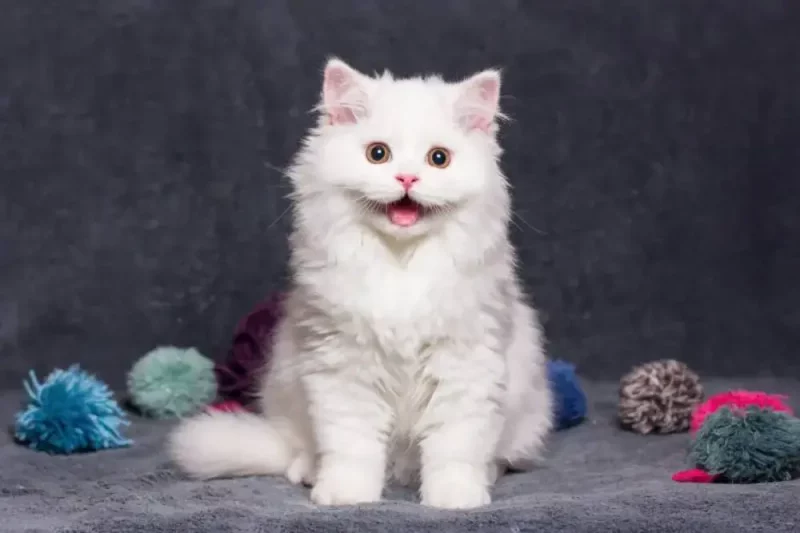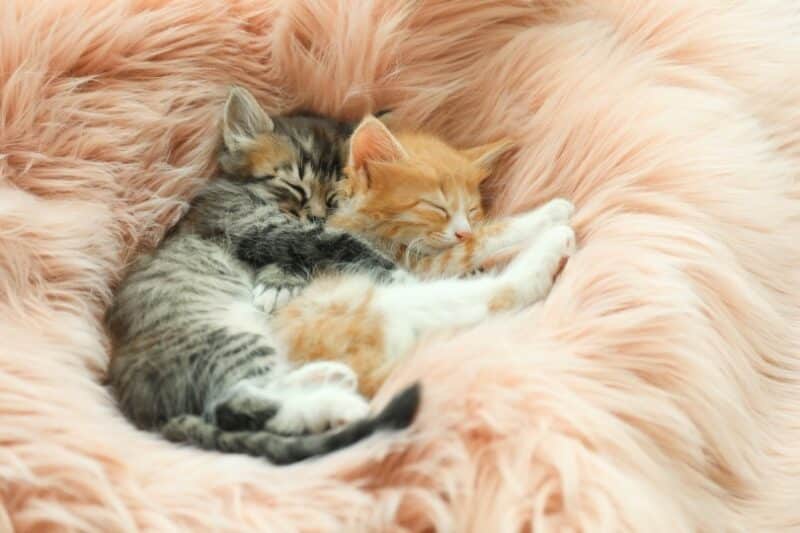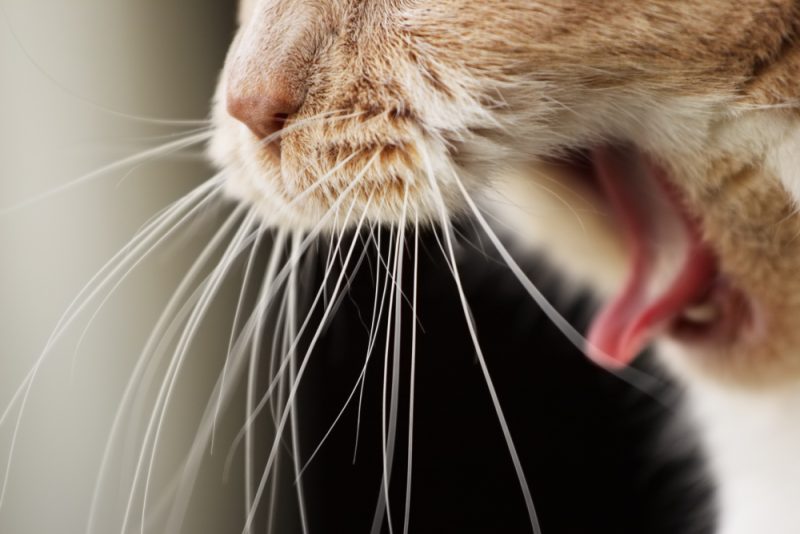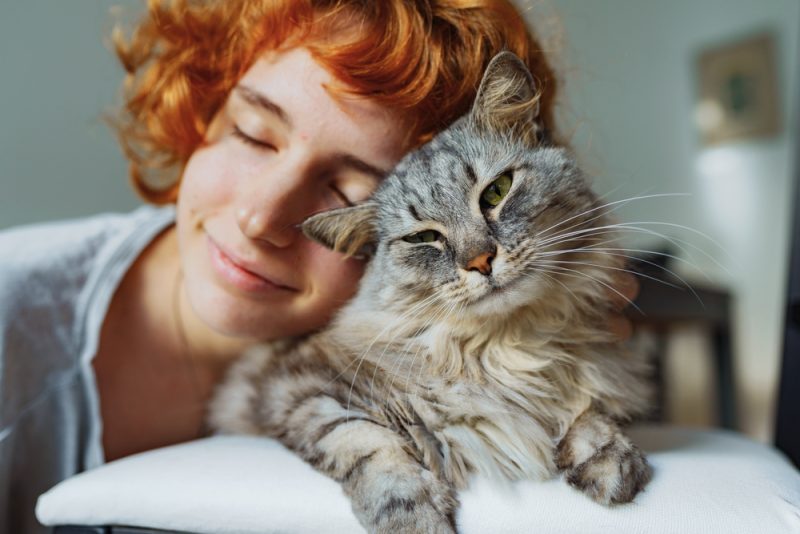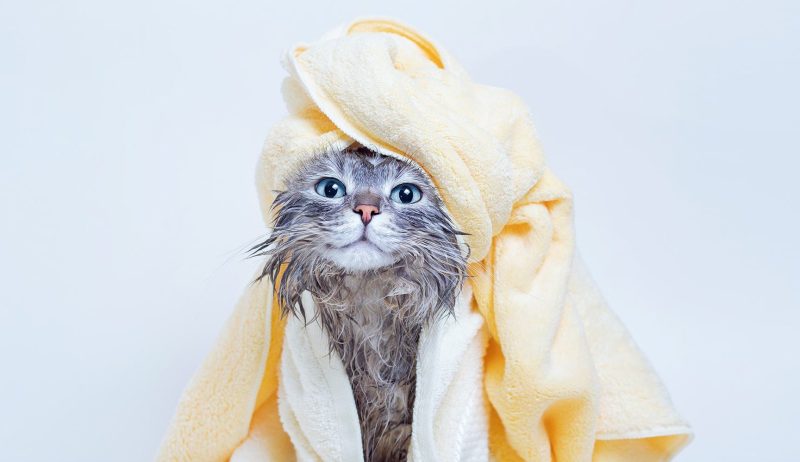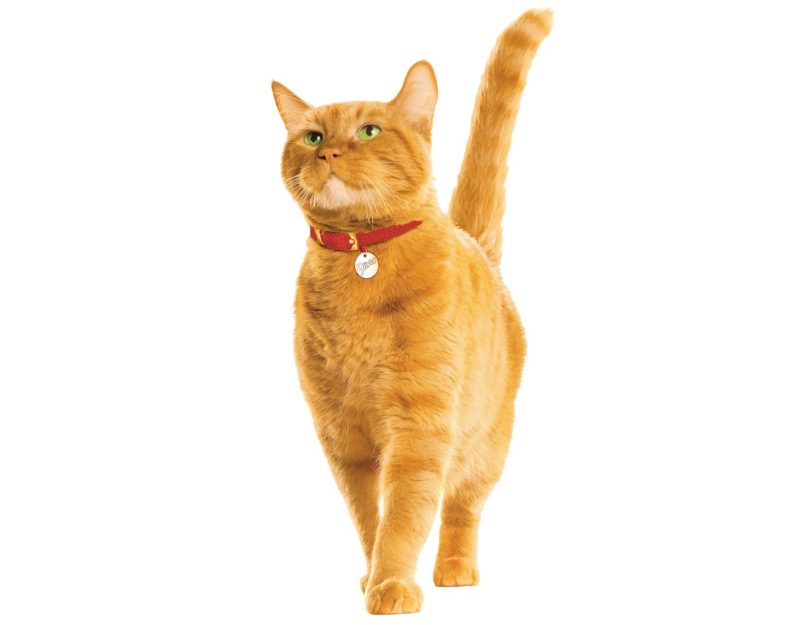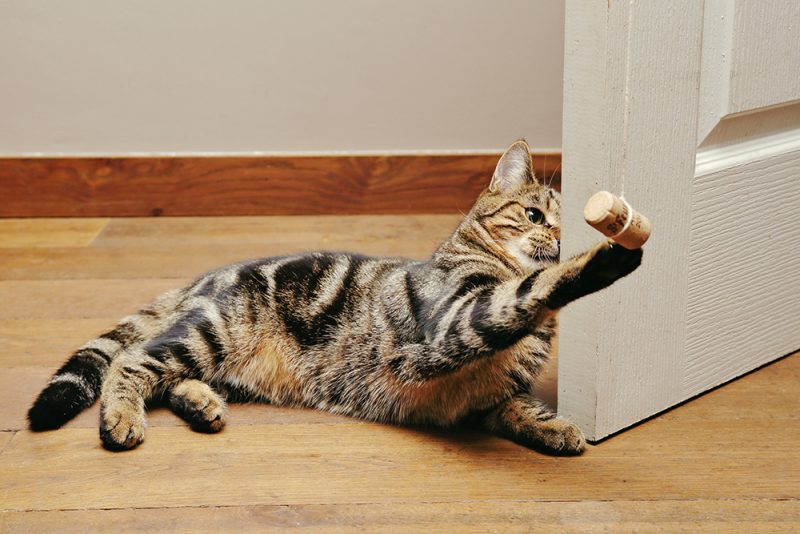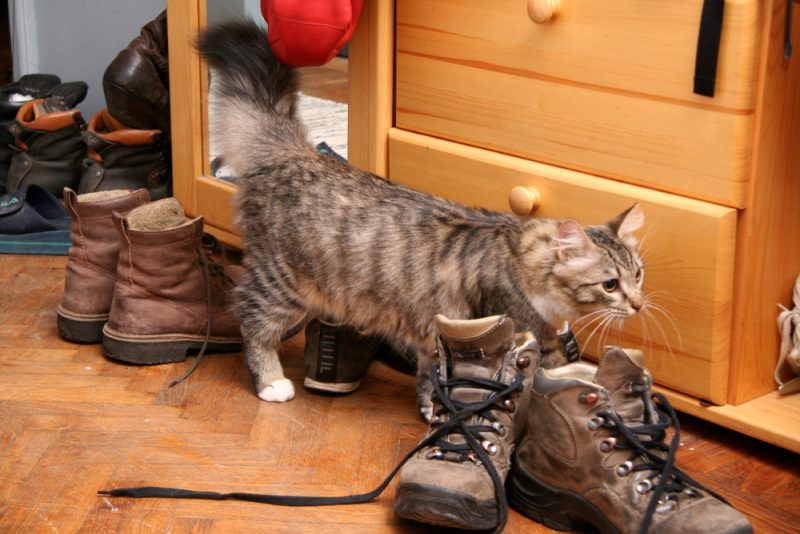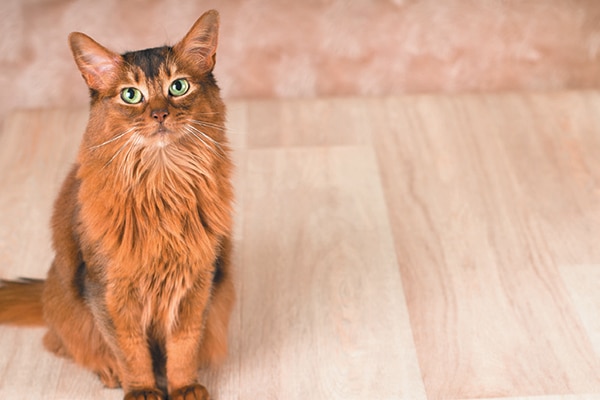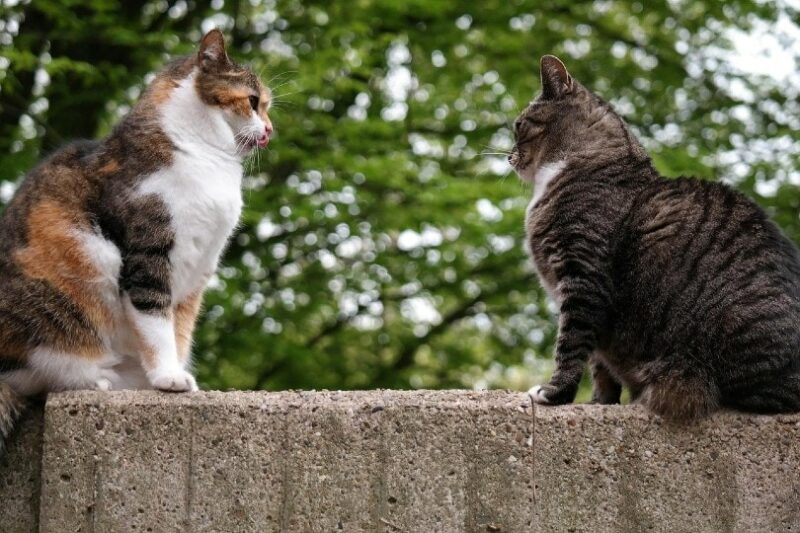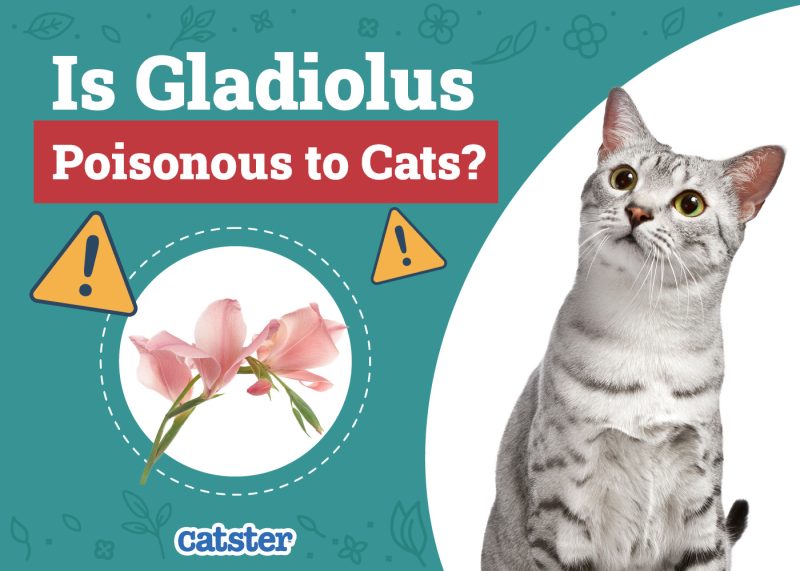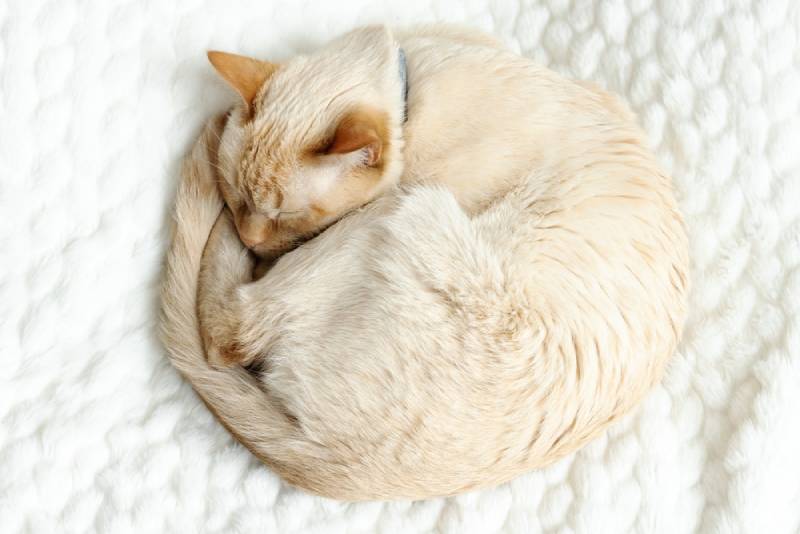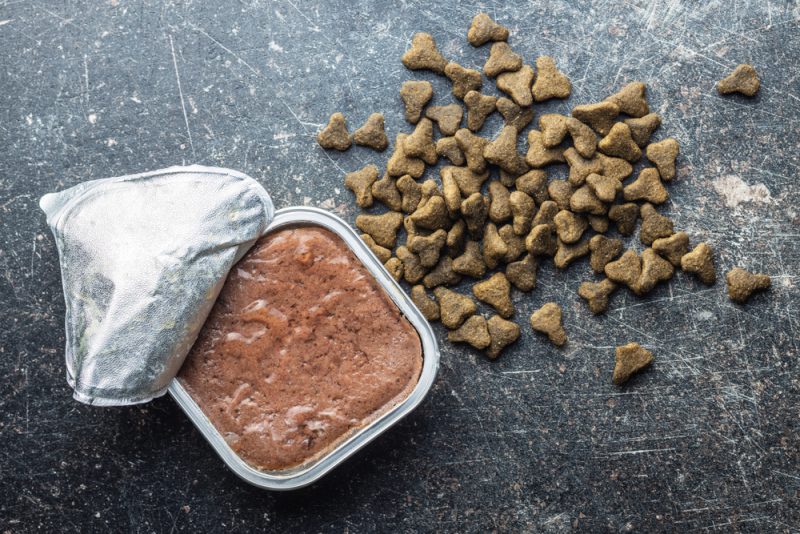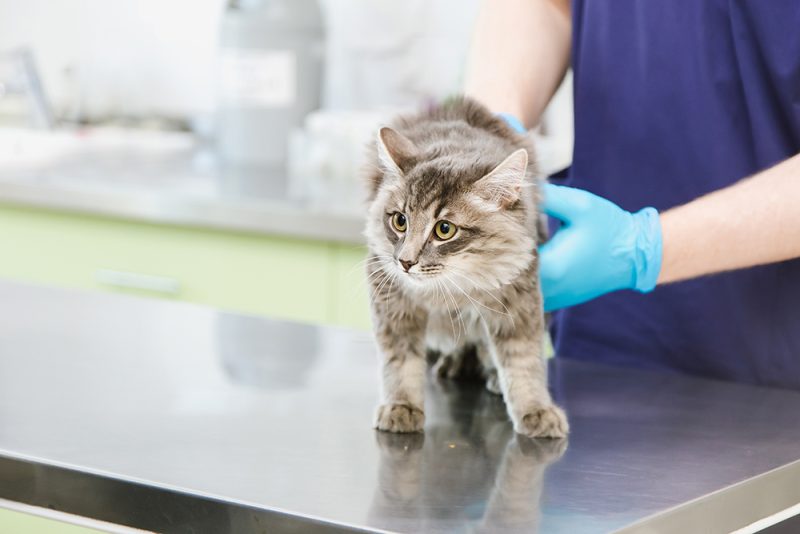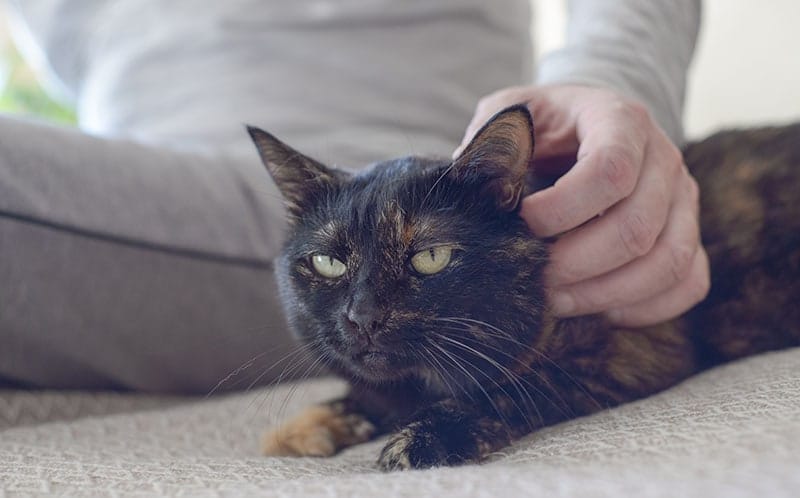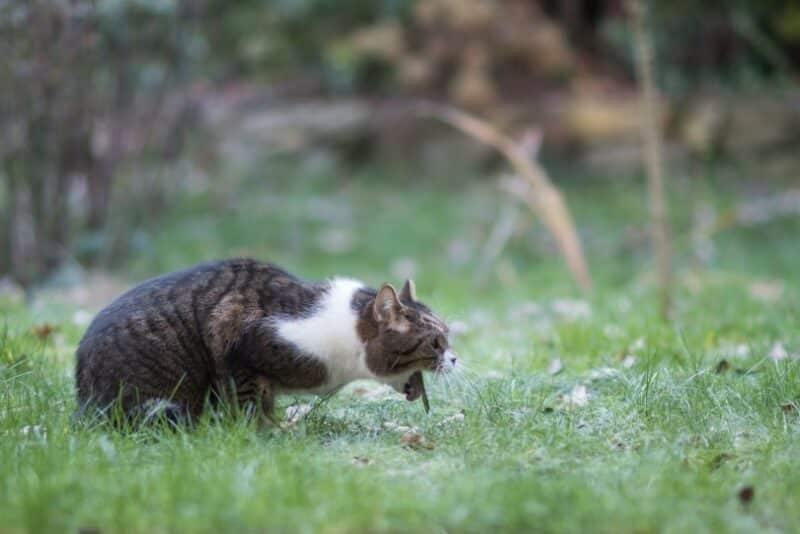We are all familiar with the sight of a happy hound, tail wagging and tongue lolling, panting to cool down on a hot day or after a run. But what if we find our cat panting with his mouth open? Is that ever normal or should we be worried? The answer is no, it is not normal for cats to pant. Let’s take a closer look!

Is It Okay for Cats to Pant?
The answer is a qualified “No”. Panting is a word that describes open-mouthed, rapid, or heavy breathing. It is never ‘normal’ for a cat to pant and cats are not physically designed to mouth-breathe for long periods.
In a healthy cat, panting after exercise should only occur after unusual exertion, and then only for a short time. Cats may occasionally pant in very stressful situations and may do so if confined in hot conditions – but if nothing about the circumstances offers an explanation, then something may indeed be wrong.
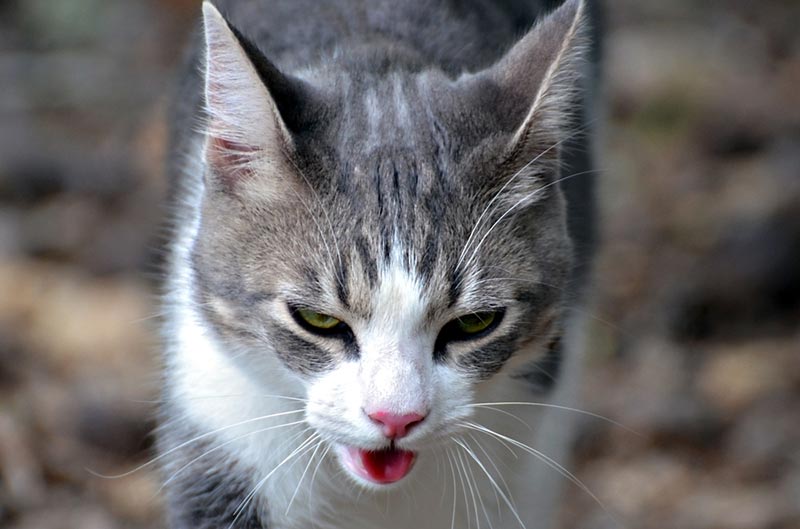
Should I Be Worried if My Cat Is Panting?
To gauge how worried you should be, consider the situation around you and what you know of recent events. Read the sections on stress and on heatstroke below to rule these out – note that cats with heatstroke will need veterinary care.
It’s a good idea to ask yourself if you have noticed other changes in your furry friend. Review recent weeks or months to see if you can appreciate weight loss, greater thirst, altered breathing, or any other difference. This can give you – and a vet – clues to an underlying problem.
If you need to speak with a vet but can't get to one, head over to PangoVet. It's an online service where you can talk to a vet online and get the advice you need for your pet — all at an affordable price!


Is Panting a Sign of Stress or Pain in Cats?
Let’s face it, we envy them: snoozing and lazing for most of the day, never seen working on their keep-fit regime, yet able at a moment’s notice to take to their heels or leap effortlessly onto a high perch. Stress panting is rare and most healthy cats can cope with sudden exertion or stress with no signs at all.
If you do see your cat chased across the yard with a barking hound dog at his heels, or find him hemmed in and unable to move to a safe place, threatened by people, noise, or other pets, then extreme stress may have caused him to pant. Even so, he needs to be carefully watched, and it’s worth reading on to consider the underlying problems that might be brewing.
Pain alone would rarely make a cat pant, unless sudden and severe, such as a road traffic accident. Even then, panting would suggest more than just bruising. Long-term painful conditions, such as arthritis, often go unrecognized for months or years because cats hide their pain so well, simply becoming subtly less springy and less interactive.
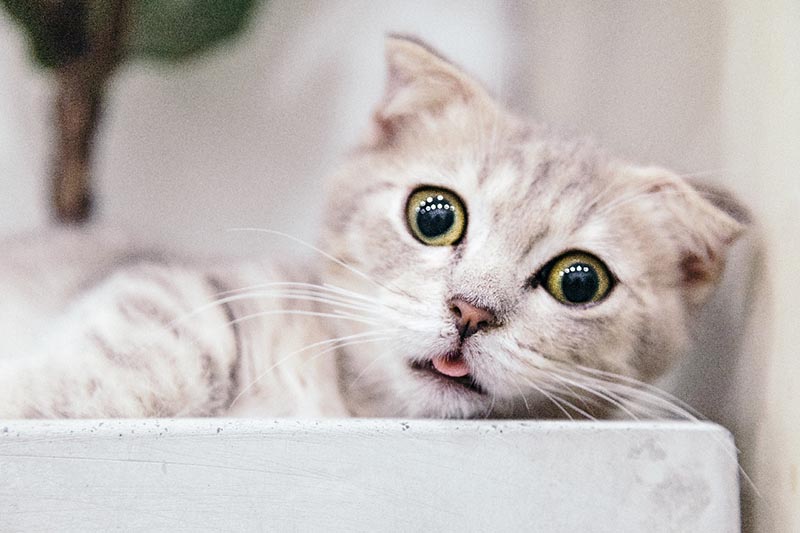
Is Panting a Sign of Heatstroke in Cats?
Open-mouthed panting and drooling can be signs of heatstroke. Although originally a desert animal, evolving to cope in conditions of high, dry heat and limited water supplies, cats can still get heatstroke. If they are trapped in a car, conservatory, or outhouse, with insufficient shade or ventilation, it’s a possibility.
Overheating is more likely if the cat hasn’t had access to water. It’s also more likely in the elderly and the very young, in dense-coated and long-haired breeds, and the flat-faced breeds such as Persians and Exotic Shorthairs.
Panting may be an obvious finding, but cats may also be restless, staggering or confused, have vomiting or diarrhea, and at worse, may collapse or have seizures.
What Should I Do if My Cat Is Panting?
Remember that, unfortunately, some of the conditions that can cause a cat to pant are serious.
- Be quiet, calm, and gentle, keeping stresses to a minimum – your cat may be very fragile.
- Close off any open windows and doors to keep your cat in while you watch, read, and think about what to do.
- If you have found your cat confined to a hot place and think he may have heatstroke, move him to a cool area.
- Access the number for a veterinary clinic.
- Offer fresh, cool water to drink – but don’t try to force water down.
- If heatstroke is likely, gently damp the coat with tepid – not cold – water, or place thin, wet towels over him. Place a fan nearby. Seek veterinary advice if you are unsure about doing this, but studies show that home-care before heading to the clinic can improve the outcome. Get your air conditioner running in the car if possible.
- If it feels safe to watch and wait, read all the sections here and consider whether you’ve seen other changes in your pet – if in doubt, seek veterinary advice.
Why Is My Cat Panting?
We’ve looked at how normal cats in abnormal situations – of heat, stress, or fear – might pant for a short while.
- Asthma and bronchitis syndrome
This causes episodes of rapid breathing and wheezing. Often confused with hairball retching, the hunched posture, elbows out, and head stretched forward, with a choking wheeze, finishing in a retch and swallow is suggestive.
- Heartworm and other parasites
Parasites affecting the heart or lungs can cause a cough or breathlessness. This is more commonly a problem in cats that go outdoors and in southern and midwestern U.S. states; heartworm prevention is recommended.
- Hyperthyroidism
Cats with an overactive thyroid may gradually lose weight, have diarrhea, drink more, become more vocal, look unkempt, and develop secondary heart problems and hypertension.
- Heart disease:
Often surprisingly difficult to spot till well-advanced – coughing is uncommon – heart disease in its later stages can cause rapid, strained, or open-mouthed breathing, as well as collapse or cold extremities.
When Should I Take My Cat to the Vet for Panting?
Remember, a healthy cat shouldn’t pant, so it’s best to consider a vet visit unless you’re confident that his panting can be explained by stress or over-exertion. Even then, it’s possible he has underlying disease and you should consider a vet visit.
- Call a veterinary clinic and let them know his symptoms – they’ll want to prepare for your visit.
- Start cooling the car if need be and be gentle when moving him into a carrier.
- Be prepared for your cat to be admitted; he may need oxygen, observation, and diagnostic tests. Give some thought to what level of care you will want and what guidance you’ll give as to your budget.

Conclusion
Panting in cats is generally considered abnormal and can be a sign of severe hidden illnesses. In general, it’s best to take your cat to the vet if he’s panting. Cats are excellent at hiding the signs of disease and it’s best to arrange for your vet to examine your cat as soon as possible.
Want more free vet advice? Check out some of our other Ask-a-Vet posts:
Featured Image By: Ihtar, Pixabay
